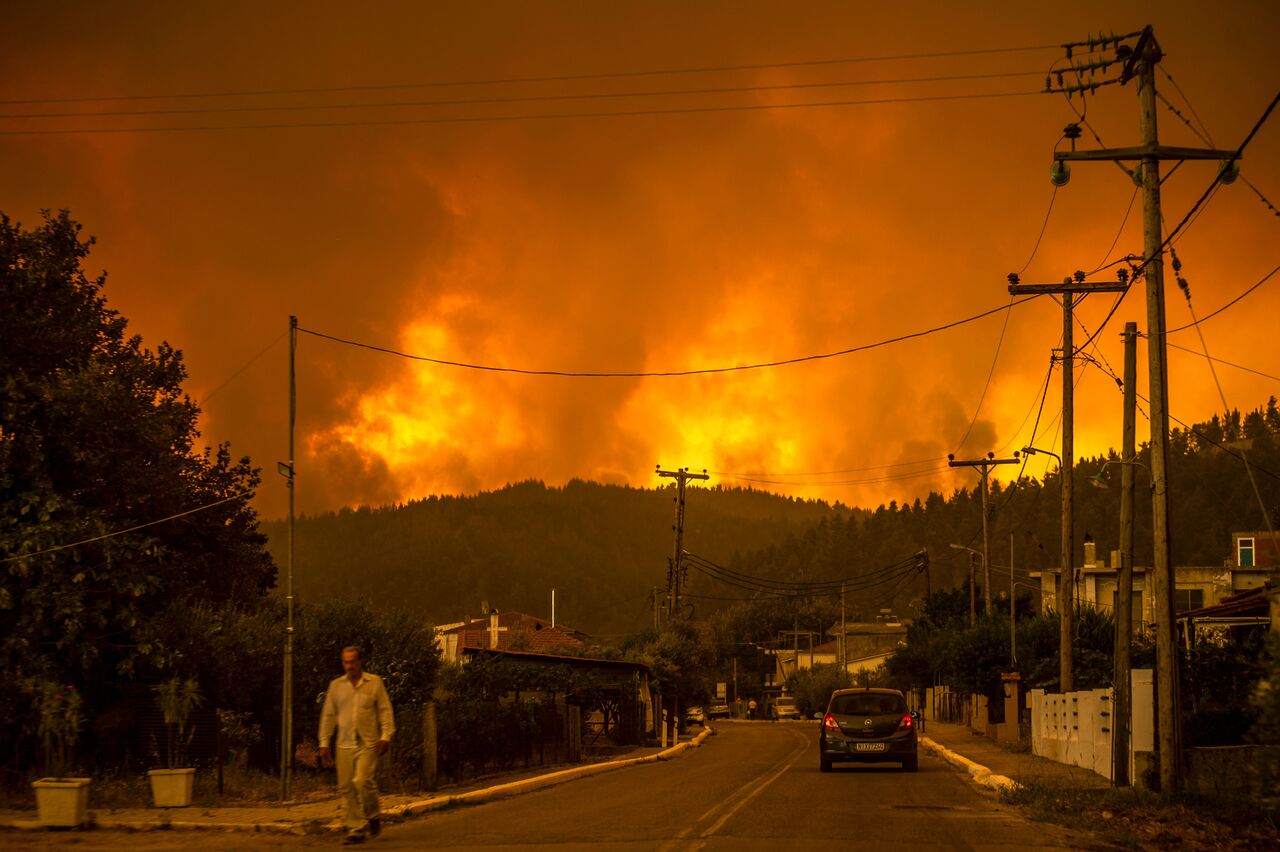Acting now will mean a safer future, leaders and experts say in reaction to IPCC climate report
Sign up now: Get ST's newsletters delivered to your inbox

The impacts of the climate crisis will only continue to intensify unless we choose another course for ourselves and generations to come.
PHOTO: AFP
Follow topic:
SINGAPORE - The United Nations climate panel's report warning that climate change is widespread, rapid and intensifying is an urgent call to action, world leaders, scientists and others said on Monday (Aug 9).
The projections of escalating weather extremes, higher sea levels and threats to food security, human health and economic survival point to a more dangerous future for nations rich and poor, but especially the poorest and most vulnerable.
The Intergovernmental Panel on Climate Change (IPCC) report is the clearest, science-based assessment of what more extreme climate change looks like for a planet largely unprepared for hotter, deadlier weather.
But while many expressed alarm, the other clear message is that it is not too late to act. The faster nations act to cut emissions, the lower the risks for current and future generations.
"The report indicates that there are still opportunities to act and that rapid action will have profound benefits in the near term," Dr Greg Flato, a senior scientist with Environment and Climate Change Canada who was involved in the report, told The Straits Times' Green Pulse Podcast team on Monday.
That means countries must rapidly shift away from fossil fuels, embrace electric vehicles, more efficient buildings, greener and cooler cities, and much more efficient agriculture that does not destroy nature.
"This report must sound a death knell for coal and fossil fuels, before they destroy our planet," UN Secretary-General Antonio Guterres said.
Environmental non-profit group Greenpeace was blunt. "Dear fossil fuel industry," the group said on Twitter. "We'll see you in court."
Mr John Kerry, the United States Special Presidential Envoy for Climate, said it is time for the world to take a different path.
"The impacts of the climate crisis, from extreme heat to wildfires to intense rainfall and flooding, will only continue to intensify unless we choose another course for ourselves and generations to come."
Dr Mary Robinson, a former president of Ireland and chair of The Elders, an independent group of leaders founded by former South African president Nelson Mandela, said: "The latest IPCC report identifies that the opportunity to limit global temperature rise to 1.5 deg C is very slim, but still scientifically possible. The exigency of this situation must not lead us to despair, rather it should propel us into action."
Investors can make a difference, said Mr Wai-Shin Chan, global head of environmental, social and governance research at HSBC.
"Investors must use their influence to push decision-makers to make the bold emission reductions required to limit the most severe consequences of climate change," he added.
Low-lying small islands are especially vulnerable to rising sea levels, more powerful storms and changing rainfall patterns.
"That is our very future, right there," said Mr Mohamed Nasheed, ambassador for the Climate Vulnerable Forum of 48 countries, and a former Maldives president.
"We are paying with our lives for the carbon someone else emitted. We will take measures soon to begin to address this injustice, which we cannot merely accept."
- Additional input from Reuters

